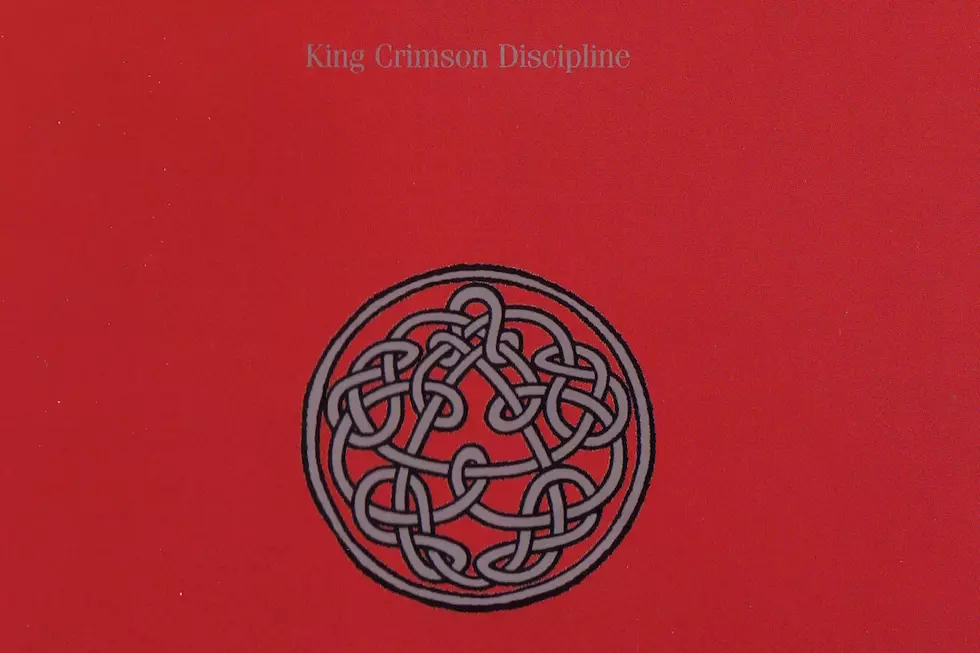
How King Crimson Were Reborn on New Wave-Influenced ‘Discipline’
In one way, Robert Fripp followed the usual template in returning with a largely remade edition of King Crimson for Discipline. But once fans heard the album on Sept. 22, 1981, it became clear something fundamental had changed during the group's lengthy seven-year hiatus.
Only drummer Bill Bruford remained from the '70s-era lineups, joined now by Fripp, guitarist Adrian Belew and bassist Tony Levin. His tenure gave him some insight into the tectonic shift that was just ahead.
"Whenever I go into King Crimson, I'm prepared to change," Bruford told Modern Drummer in 1983. "It's not frustrating so much, as one can see one's own limitations. You have to work your way around them. In a way, in a band like this, we're saying, 'Here are some restrictions. We have decided and agreed not to do the following: A, B, C, D, E, F and G. We are not going to do those. Therefore, drummer – look to your instrument and see how you can play something else, apart from those things. Work around the subject. Come up with something different; something fresh.'"
They did. The results on Discipline are fizzy, but challenging, as King Crimson infused the typical proggier pretensions with the snappy New Wave vibe of the day. It wasn't just that a conversational Belew took over vocals. (He sounds an awful lot like Talking Heads' David Byrne, his old tour boss, on tracks like “Thela Hun Ginjeet.”)
Bruford traded in his cymbals for Simmons electronic drums. Levin's canny work on the Chapman Stick, notably on the opening “Elephant Talk,” also connected the band with art-rockers of the moment — particularly Peter Gabriel, whose post-Genesis sound was shaped in part by Levin's contributions.
“That was one of the ideas, especially in Robert’s mind, to carry on the musical legacy, but with a whole new brand of music,” Belew said in 2011. “Each of us had new toys that no one else was using, like the stick and the guitar synth. I really felt like we ended up making something fresh that didn’t sound like anything else.”
Yet for everything different, Discipline didn’t move completely outside the ever-shifting King Crimson’s age-old vernacular — notably on the trippy instrumental “The Sheltering Sky,” titled after the 1949 novel by Paul Bowles. Belew’s jabbing style, it quickly became clear, would make for an intriguing passenger during Fripp’s familiar explorations in texture.
The band was reborn, both creatively and – it turns out – financially. "King Crimson only made money after we broke up," Fripp told Musician magazine in 1981. "After six years of hard work, we had a deficit of $125,000. When we disbanded, the records went on selling, and that's how we finally made some money."
Discipline ultimately created the anchoring point for a lengthy collaboration between Fripp and Belew that would last through 2013 – even if it took King Crimson's older fans a little while to catch up.
Even back in 1981, Fripp had already accepted it might. He told Musician he figured on "two to five years, right? Seriously! It takes about that long to disseminate. It's like throwing rocks in the middle of a lake and waiting for the ripples to get to shore. And in our industry, I've noticed it takes two to five years for an idea to be accepted."
See King Crimson Among the Top 100 Live Albums
More From Ultimate Classic Rock









